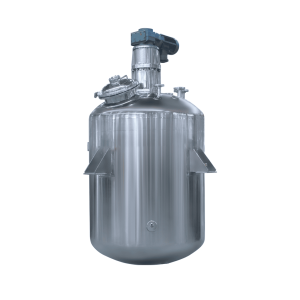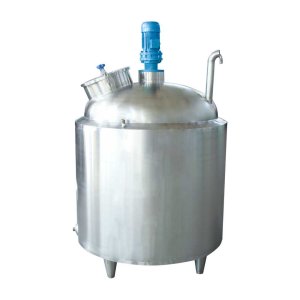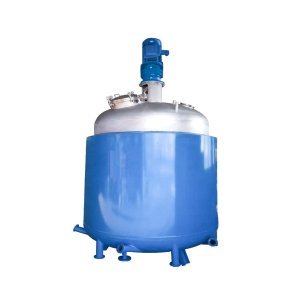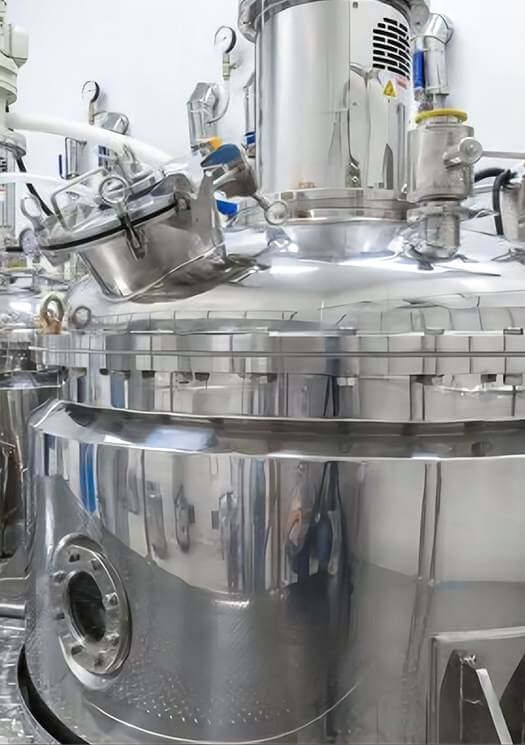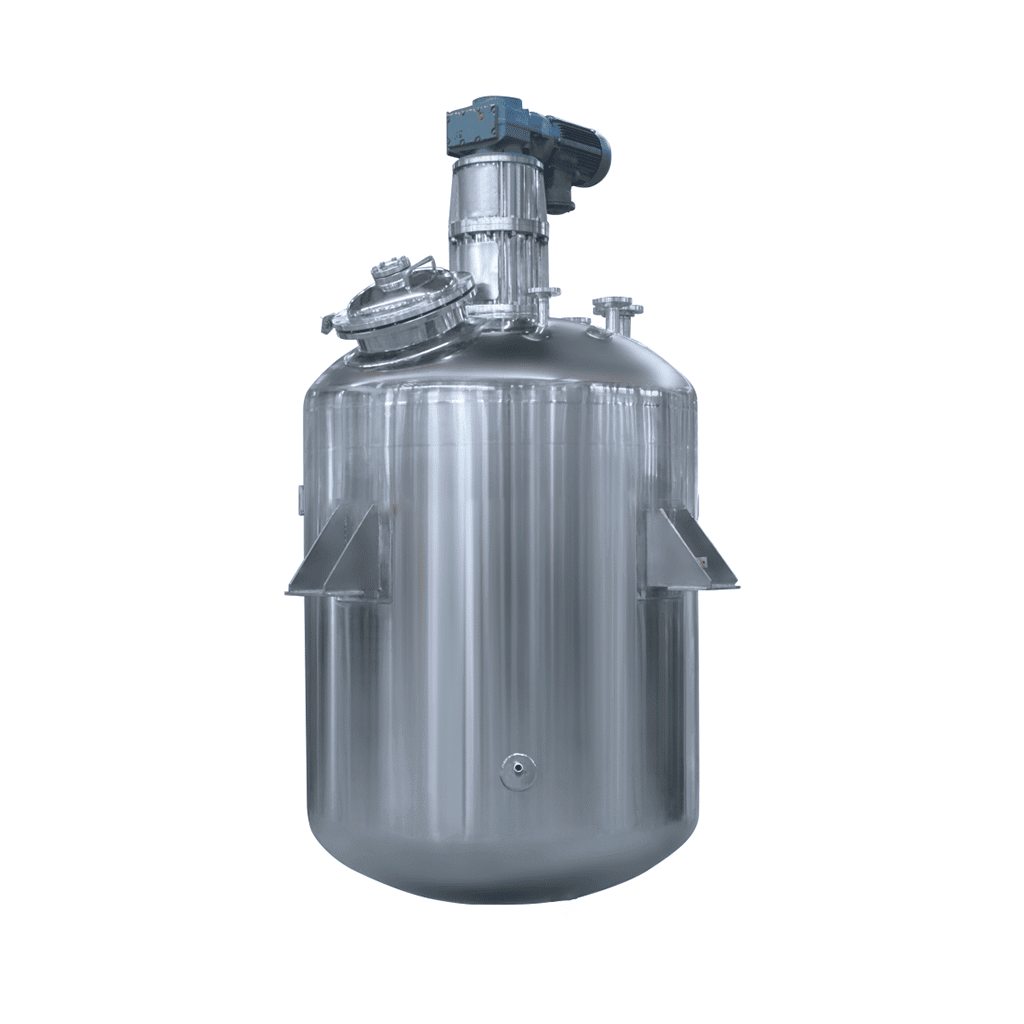
-24-1.jpg)
Stainless Steel Reactor
Stainless Steel Reactor: used in dairy products, sugar, beverages, and other fields
Material
stainless steel (316, 304)
Capacity (L)
10-10000+
Mixing system
anchor, paddle, frame and others
Heating system
electric heating, oil heating and others
A stainless steel reactor is a stainless steel container equipment. The stainless steel reactor consists of a kettle body, a kettle lid, a stirrer, a jacket, a bracket, a transmission device, a shaft seal device, etc. Materials and openings can be made according to user needs and process requirements. Stainless steel reactors are mainly used for stirring, homogenizing, and mixing storage of dairy products, sugar, beverages, food, and various pharmaceuticals.
Request a quoteIn the vast realm of chemical engineering and industrial processes, reactors play a pivotal role in facilitating various chemical reactions. Among the multitude of reactor types available, stainless steel reactors have gained widespread recognition for their durability, versatility, and exceptional performance. Designed to withstand corrosive environments and high pressures, stainless steel reactors have revolutionized the chemical industry, enabling efficient and reliable production across a wide range of applications.
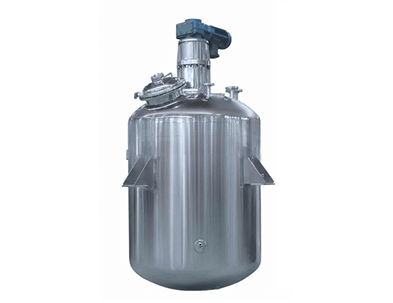
Construction and design of stainless steel reactors
Stainless steel reactors are meticulously crafted using high-quality stainless steel materials, known for their remarkable resistance to corrosion, heat, and chemical reactions. Typically made from alloys such as 316L, 304, or 316, these reactors are built to withstand harsh operating conditions, ensuring long-lasting performance and minimal maintenance requirements.
The design of stainless steel reactors is carefully tailored to accommodate specific process requirements, with variations available for different reaction types, volumes, and operating parameters. They can range from small-scale benchtop reactors used in research laboratories to large-scale industrial reactors employed in manufacturing plants. Modular designs allow for easy customization and integration of additional components, such as agitators, baffles, coil jackets, or internal heat exchangers, depending on the specific application.
Key features and advantages of stainless steel reactors
Stainless steel reactors offer numerous advantages, making them an ideal choice for chemical processing and industrial applications. These key features include:
1.Corrosion Resistance: One of the primary advantages of stainless steel reactors is their exceptional resistance to corrosion. Stainless steel exhibits impressive durability, even in acidic or aggressive environments, making it the preferred choice for handling corrosive chemicals. This corrosion resistance ensures product purity, prevents leakage, and enhances the overall safety of the operation.
2.High Pressure and Temperature Resistance: Stainless steel reactors are capable of withstanding high pressures and temperatures, making them suitable for a wide range of reactions. Their robust construction ensures operational stability, enabling the handling of complex chemical processes and facilitating precise control over reaction parameters.
3.Versatility: Stainless steel reactors are extremely versatile and can accommodate various reaction types, including batch, continuous, or semi-batch processes. Their flexible design allows for easy integration with other equipment, such as pumps, valves, heat exchangers, or filtration systems, expanding their range of applications.
4.Easy Maintenance and Cleaning: Stainless steel’s smooth and inert surface makes stainless steel reactors easy to clean and maintain. This feature is especially important for processes involving sensitive or high-value products, where product contamination must be avoided.
5.Scalability: Stainless steel reactors are available in a wide range of sizes and configurations, allowing for easy scalability from laboratory-scale experiments to large-scale production. This scalability ensures the smooth transition and optimization of processes from research and development to full-scale manufacturing.
-24-1024x1024.jpg)
Applications of stainless steel reactors
The versatility and reliability of stainless steel reactors make them invaluable in various industries and applications. Some notable applications include:
1.Chemical Manufacturing: Stainless steel reactors are extensively used in the chemical industry for the production of pharmaceuticals, specialty chemicals, polymers, and fertilizers. Whether it’s the synthesis of complex organic compounds or the formulation of chemical intermediates, stainless steel reactors provide the necessary conditions for efficient and controlled reactions.
2.Petrochemical Industry: Stainless steel reactors play a crucial role in the petrochemical sector, where they are employed in the production of fuels, lubricants, and various petrochemical derivatives. Their high-pressure capabilities and resistance to corrosive hydrocarbons allow for safe and efficient processing of petroleum feedstocks.
3.Food and Beverage Industry: From the production of food additives and flavorings to the fermentation of alcoholic beverages, stainless steel reactors find extensive use in the food and beverage industry. Their corrosion resistance and easy cleanability make them ideal for handling food-grade materials.
4.Pharmaceutical Industry: In pharmaceutical manufacturing, stainless steel reactors are essential for the synthesis of active pharmaceutical ingredients (APIs) and the development of new drug formulations. The stringent quality requirements of the pharmaceutical industry are met by the inert and easy-to-clean properties of stainless steel reactors.
5.Environmental and Waste Management: Stainless steel reactors are also employed in environmental applications, such as wastewater treatment, landfill gas processing, and air pollution control. They help facilitate chemical reactions that remove pollutants and transform waste into usable products, contributing to sustainable and environmentally friendly practices.
The stainless steel reactors have emerged as a cornerstone of modern industrial processes, providing a durable, versatile, and efficient solution for various chemical reactions. Their exceptional corrosion resistance, high-pressure capabilities, ease of maintenance, and versatility make them a preferred choice for a wide range of industries, from chemical manufacturing to pharmaceuticals and beyond. As industries continue to evolve and seek innovative solutions, stainless steel reactors will undoubtedly continue to play a vital role in advancing chemical technologies, enhancing product quality, and optimizing industrial efficiency.

